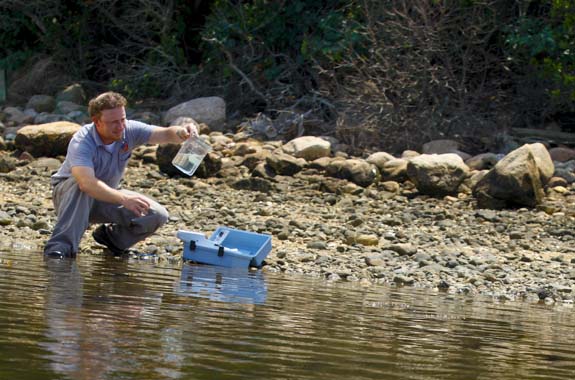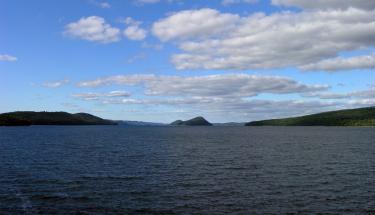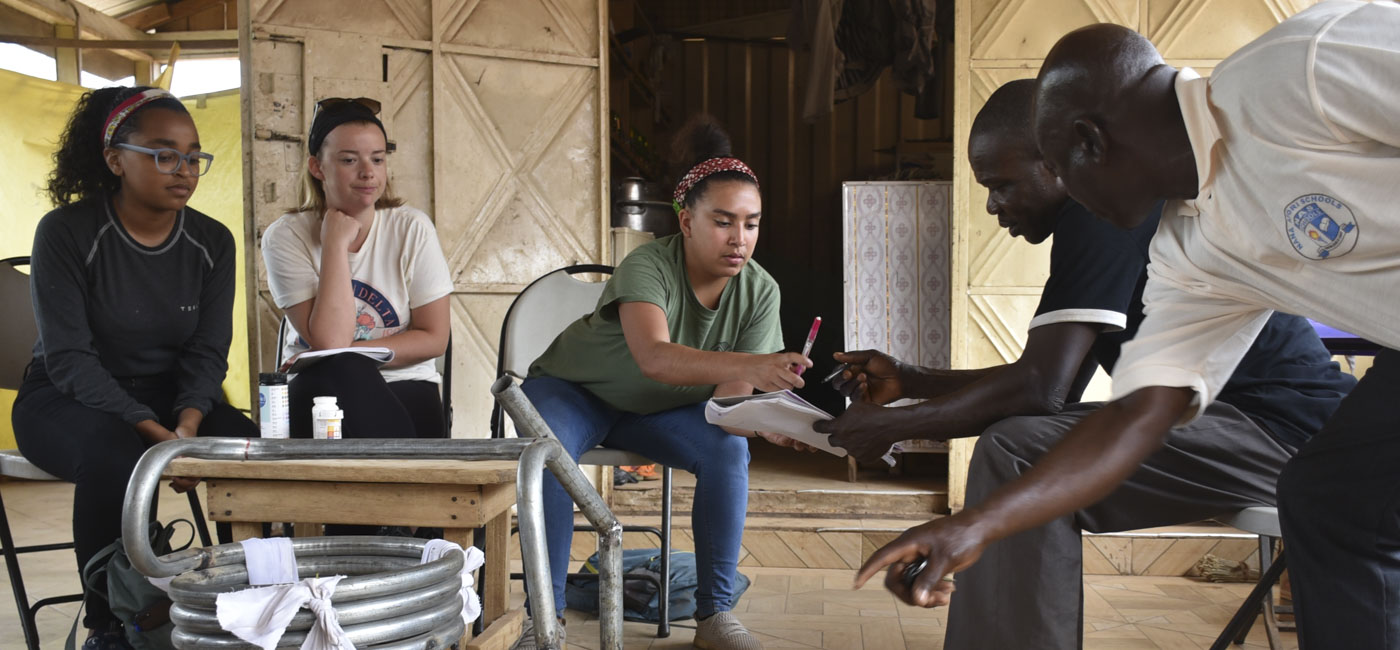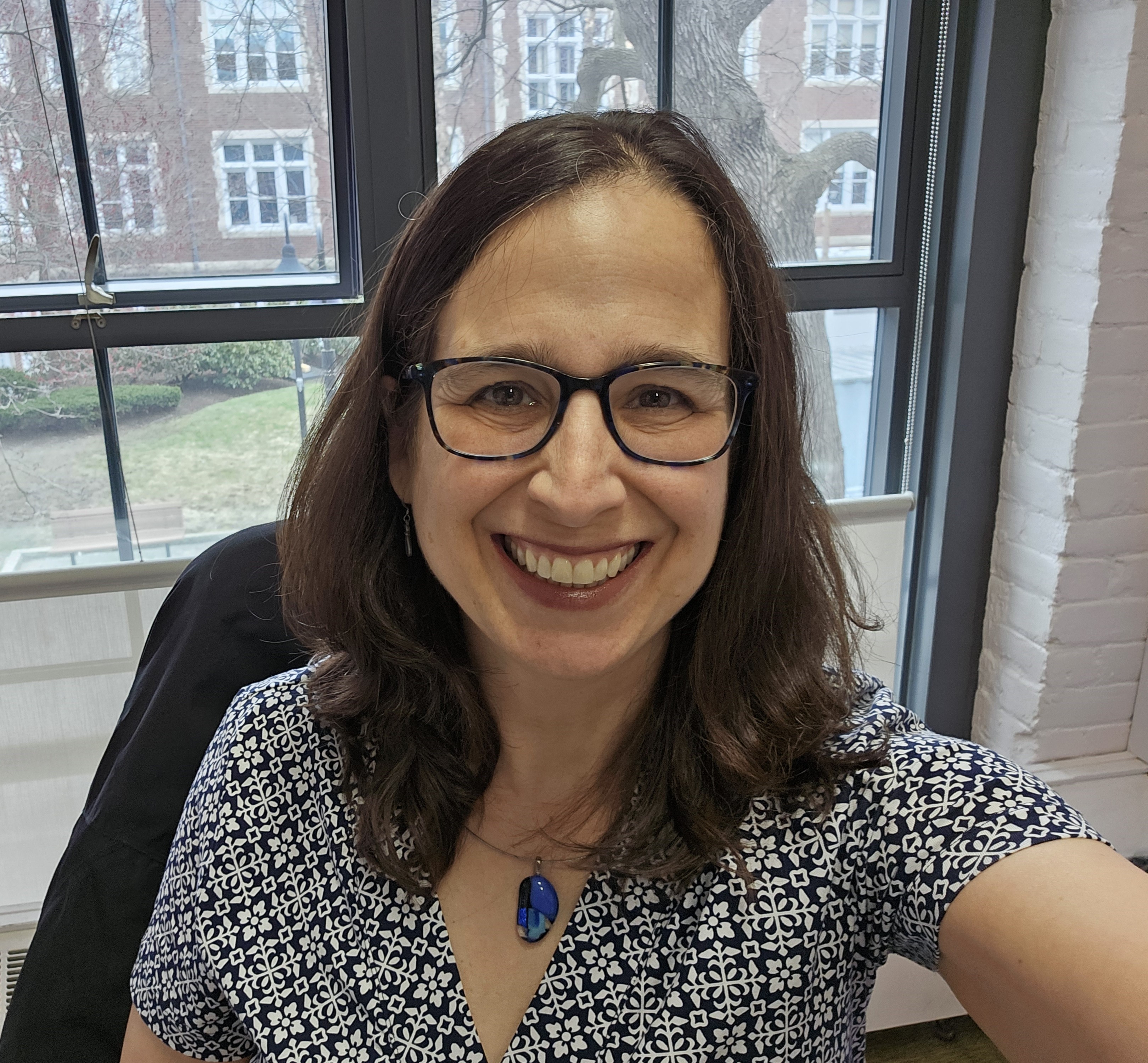When Jacob Grealis ’18 came to WPI from his hometown of Clinton, Mass., he didn’t give much thought to water problems in his home state. But that all changed when he started his IQP in nearby Charlton.
“I was shocked at how much contamination and water issues there are locally,” he says. “As a 21-year-old, I don’t usually think about what’s in my water and just assume Massachusetts has clean water because it’s not on CNN or Fox.” Grealis says starting a drinking water project with the town of Charlton through WPI’s Worcester Community Project Center Community Empowerment & Environmental Responsibility (WCPC-CEER), and in conjunction with the Massachusetts Water Resource Outreach Center (WROC) was an eye opener to the amount of contamination in that town’s groundwater. “It was a big surprise,” he says.

Corey Denenberg Dehner
Today’s marking of the annual World Water Day calls attention to the essential resource of clean water and how the water cycle can be improved to keep water from being wasted and to keep a clean, fresh water supply plentiful and efficient.
WPI students are no strangers to water issues, with many global project centers focusing on water, and the Great Problems Seminar “The World’s Water” examining various water problems. But many students are surprised to find serious problems so close to WPI.
“Water infrastructure issues, stormwater pollution, and access to safe drinking water are some of the most pressing environmental challenges of our time,” says Corey Denenberg Dehner, assistant teaching professor in Interdisciplinary and Global Studies, and director of WCPC-CEER, and co-director of WROC with civil and environmental engeineering professor Paul Mathisen. When students learn about water issues, they learn about the technical details, but they also learn about laws and regulations and how those laws operate in real practice and with outside influences, she says.
The WROC is a brand new, theme-based WPI project center, focused on water resource protection within Massachusetts. The center is dedicated to assisting central and eastern Massachusetts municipalities and watershed associations with their water resource needs.
“My hope is that this education and new lens with which to view the world, will encourage students to be both environmentally conscious and civically engaged.” -Corey Denenberg Dehner
Grealis and his team are working on a project that aims to educate Charlton residents on the implications of the town’s private well water contamination, methods of in-home water testing, and benefits of tapping into the municipal water system while researching innovative approaches for Charlton to decontaminate water sources within the town borders. The many layers of the problems show the students just why implementing what might look like simple, on-target solutions is far from the reality of what can happen.
“I think the biggest surprise is just how many things are involved in getting water to residents,” says aerospace engineering student Tristam Winship ‘18. “It’s not as simple as having a water plant and pumping water to homes. There are laws (federal, state, and town), water plants, contaminants, and public opinion that all have a say in what happens or how certain decisions are made.”

Many student projects involve finding solutions to
drinking water and stormwater management.
Team member James Gadoury ’17, an aerospace engineering major, says the intricacies of what it takes to supply clean and plentiful water to a town are complicated. Although water issues impact daily life, he says it’s easy to miss because the complexities of developing a water system to support a town aren’t generally obvious until it’s a problem. “I didn’t realize how much water a town can consume every day,” he says, noting that many rural towns still depend on well water. “I was very surprised that Charlton didn’t have its own [municipal] water system.”
True to its method, the IQP shows students how the technical and social intersection of issues is easily intensified by things like money, priorities, knowledge, and resources. “Students are also exposed to the inner workings of local government, and the real tension between environmental protection and budget shortfalls,” says Dehner. “My hope is that this education and new lens with which to view the world, will encourage students to be both environmentally conscious and civically engaged.”
The students are eager to share what they know because they know how critical clean, potable water is as a resource. “What surprised me was the high number of water contamination cases, or just overall problems with water, found all over the country,” says aerospace engineering major Blake Rice ’18. “What many people don’t understand is that even though water may look clean, there is a possibility it is not.”
Grealis says working with the WROC team also made the social angle of water apparent. “I think people don’t understand the importance of water systems,” he says, noting many people’s dissatisfaction with their water bills. “You have federal, state, and municipal laws regulating water, all three levels of government dealing with it. What if they didn’t have all these groups helping them?” The potential for disastrous water contamination and the likely increase in serious illness is enough to keep him motivated. “I think people need to know more about water systems, the costs, the benefits, etc.,” he says. “Hopefully our project can help.”
- By Julia Quinn-Szcesuil



